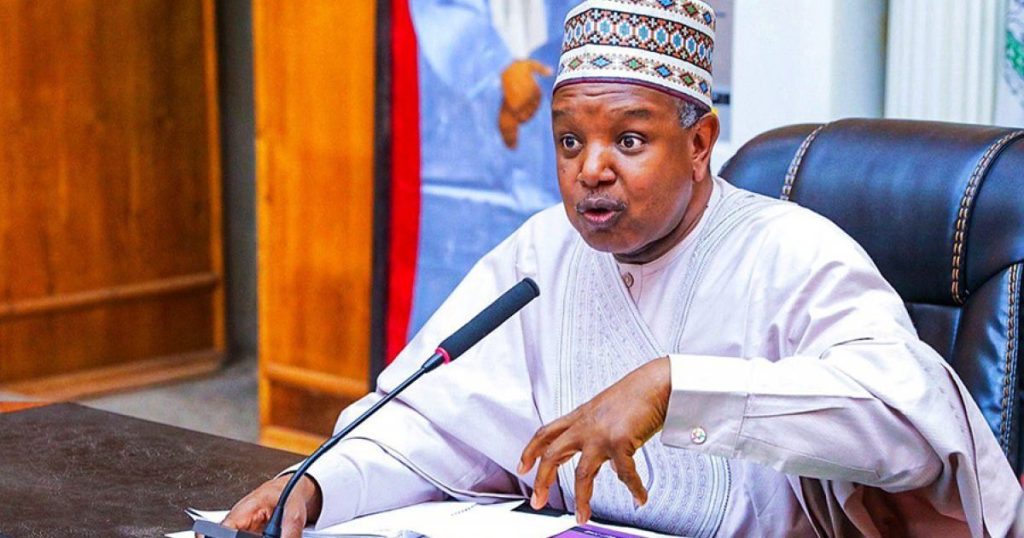Atiku Bagudu, Nigeria’s Minister of Budget and Economic Planning, has publicly backed President Bola Tinubu’s economic reforms, particularly the removal of the fuel subsidy, which he views as a critical measure for Nigeria’s economic progress. In his commentary featured in The Explainer, a weekly publication by the National Orientation Agency, Bagudu emphasizes that discussions surrounding fuel subsidies often overlook the fact that prices for diesel and kerosene have already been deregulated while petrol remains comparatively cheaper. He argues that removing the fuel subsidy is not an end in itself, but rather a means to pave the way for more sustainable economic development.
Bagudu underlines the importance of transitioning to Compressed Natural Gas (CNG) as a more economical energy source, particularly for the transportation sector. He acknowledges that this transition may cause temporary challenges for vulnerable communities but suggests that with appropriate measures, it can ultimately enhance the competitiveness of Nigeria’s energy sector. The minister credits the President for addressing the fuel subsidy issue and championing CNG adoption, indicating a forward-thinking approach that prioritizes long-term growth despite short-term discomfort.
Central to Bagudu’s assertions is the Renewed Hope Agenda, which encompasses social intervention programs aimed at mitigating the impact of economic reforms on low-income citizens. He emphasizes the necessity of confronting challenging economic realities as a foundation for sustainable growth, explaining that Nigeria’s federal budget, currently around $20 billion, is dwarfed by that of other countries with similar populations. For instance, Indonesia’s federal budget stands at $213 billion, and Brazil’s is $750 billion. According to Bagudu, this stark comparison shows that Nigeria cannot achieve its economic objectives if its revenue stream remains stunted, necessitating difficult yet essential reforms.
Bagudu elaborates on the need for better management of Nigeria’s foreign exchange reserves, expressing that the Central Bank should operate independently to stabilize currency rates. The minister notes that Tinubu is adopting a market-based approach to foreign exchange, which has shown promise in attracting more revenue streams. Such a strategy aims to create a more balanced financial landscape, in contrast to the previous approach that often favored specific sectors at the expense of broader economic stability. This initiative is seen as a critical step toward ensuring economic resilience and enhancing Nigeria’s global competitiveness.
In addition to addressing the fuel subsidy, Bagudu echoes Tinubu’s vision of empowering the nation’s youth through a substantial training program. This initiative includes education and training in automation, artificial intelligence, and robotics—fields that could significantly boost domestic productivity and innovation. Furthermore, the administration’s support for agriculture, small and medium-sized enterprises (SMEs), and microcredit schemes shows a comprehensive approach to revitalizing the economy and directly addressing unemployment and underemployment issues across the country.
Lastly, Bagudu points to the burgeoning confidence in Nigeria’s economic prospects, as evidenced by the recent oversubscription of a dollar bond by $900 million, signaling international investor interest. He notes that favorable evaluations from rating agencies reflect optimism about Nigeria’s economic direction under Tinubu’s leadership. Bagudu highlights that international commendations, including from Saudi Arabian officials, have praised the government’s focus on necessary economic reforms, suggesting that Nigeria is on the path to recovery and growth. This support from both local and international stakeholders solidifies the administration’s commitment to transforming Nigeria into a $1 trillion economy through thoughtful and strategic reforms.


